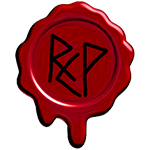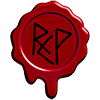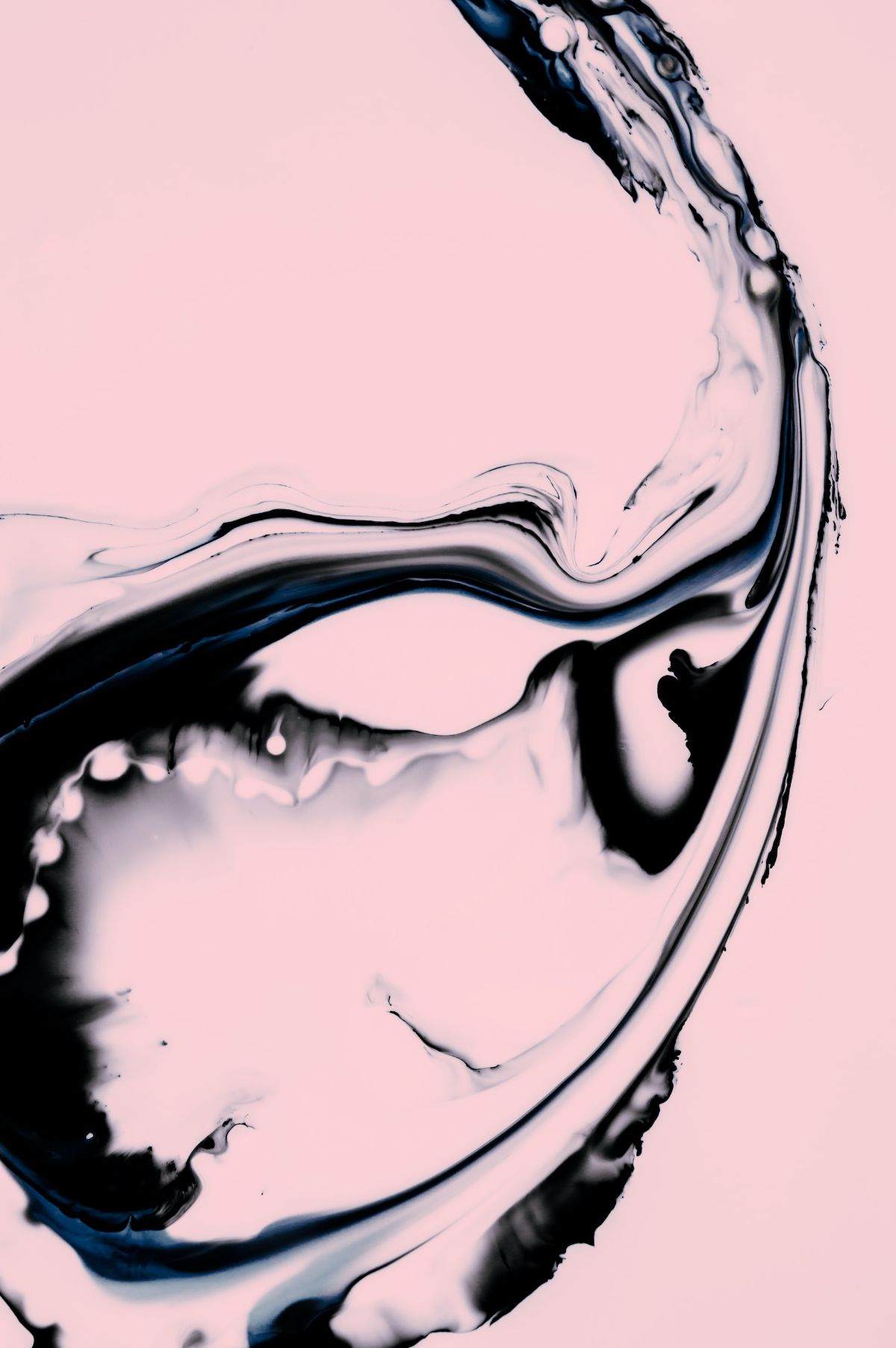
This month we offer a ginger(ly) braid, a procedure in three parts, new world sparrows.
Next month we:
move
Submission guidelines can be found here.
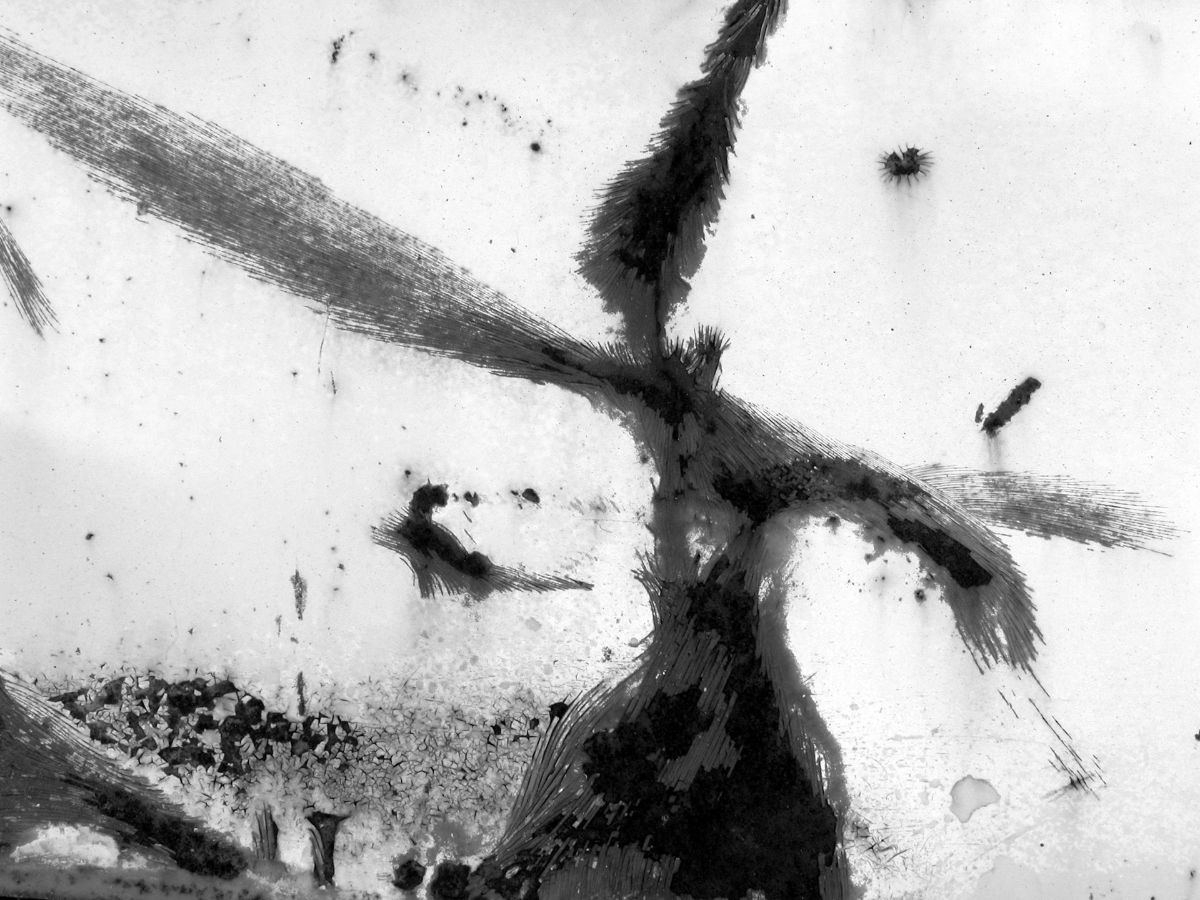
Ginger(ly) braid
My flesh is taking up spice.
I tap on the glass and say, “This
is me, this is me, this is me—”
My order is an animal
that has been many shapes;
cookies not currency accepted.
One of these is not liking
the other, but they’re still
me, and my insulin catches
up, fresh from the pan. Crease
the pinchable closed. Bag
beg to scale and tare.
Vanessa Couto Johnson (she/they) is the author of the full-length poetry books Pungent dins concentric (Tolsun Books, 2018) and forthcoming pH of Au (Parlor Press, Free Verse Editions Series 2022), as well as three poetry chapbooks. Most recently, Vanessa’s poems have appeared in Landfill, Abandon Journal, Angel Rust, and Pine Hills Review.

procedure in three parts
I. removal
On the day my breasts were removed, the sun hitchhiked up the sky. A web of orange red marigold. We stare at it quietly, trying not to disrupt our eyes. Some things are so beautiful, they burn. Two waiting rooms and then a curtain separating me from the other patients. A gown made of cotton, not paper. A bag for my belongings. My body asking questions caught behind my teeth. Shivering. This hospital, a country full of women. My surgeon draws on me. My eyes follow the black marker marking skin. Nurse named Laurel gracefully inserts an IV. Anesthesiologist injects what will feel like three glasses of wine. I ask what color. My consciousness drinks red.
II. pain
There are fourteen syllables in this pain. It is 5 pm traffic on interstate 95. There are lightning bolts made from microwaved needles trampolining off my skin, off a chest I haven’t met yet, that waits for me beneath bandages. This pain is a verb and a proper noun. This pain is a run-on sentence, and it won’t let me off the phone. This pain is reminding my body how alive it is.
III. recovery
At night, the body is chrysalis. Spelling weather patterns into the bedsheets made too warm by the summer heat. For the first time in a month and a half, I roll on to my side. My scar winces just a little and I ask it permission to remain. Curled. As though trying to fit myself, inside myself. My limbs are weak and uncertain now. But as I sleep, I dream of bodies against mine who don’t ask me what I am or even what I need. They do not tell me I am not enough of this or do not look the part. They just remain like screen doors protecting me. In the morning, I ache, I wish for more hours, for autumn to whisper its sixty-degree breath against my neck. I unfurl. Beside me, frost or snakeskin or the peeling remains of my scar guard repair liquid beside me and lifting off my skin. My body is a windowsill, peering out, wondering what is next.
Aimee Herman is the author of the novel, “Everything Grows” (Three Rooms Press) and two full-length books of poems, “meant to wake up feeling” (great weather for MEDIA) and “to go without blinking” (BlazeVOX books), in addition to being widely published in journals and anthologies including BOMB, cream city review, and Troubling the Line: Trans and Genderqueer Poetry and Poetics (Nightboat Books). Aimee is a queer writer and educator and a founding member of the poetry band, Hydrogen Junkbox.

New World Sparrows
I’ve dealt with each body in its own way.
For a long time it was just the one: the body that is decidedly my body, is arguably actually me. I feed it, wash it, tell it a long story that never comes to an end until one day I guess it will, and we’ll slide out of the world in quiet unison. This one hardly counts.
The first other body was when my boyfriend brought home a dead bird. He was still my boyfriend then. Now he’s a set of funny stories I tell over and over, and a hard lump of sad incredulity I keep tucked away in my chest. How it is possible that I chose him over myself for so long, when he gave me so little? But one thing he did give me was the corpse of that bird. I set it in the freezer because I couldn’t tell what it was. I thought if I saved it for long enough, I would come to learn its name.
About a year later, I woke up in bed next to the second body. It was long-haired, youthful, radiant, and taking the spot that my boyfriend had recently vacated—as in, he had finally moved out of the house, not like he was up before me and making us coffee, which he didn’t do once in eight years. This one evaporated before I had time to worry about it. It left behind indented sheets, and a smell of cinnamon.
Another one appeared in my garage, half-mummified, unidentifiable. I left it in a corner near my ex’s old paint cans and a broken rake and other trash that he’d hoarded and left behind. For all I know, it’s still down there. It appears occasionally in my dreams.
My dad’s body was a puzzle. Of course I called him right away to see if he was dead, and he wasn’t. He picked up the phone and we had a whole conversation while his likeness was sprawled on my living room floor, giving me that light-blue dead-eyed stare. Not an experience I recommend. But I’d been assured of its imposter status, so I bagged it and popped it in the outside bin, no compunction. I was ready for anything.
Just yesterday I rediscovered the bird, its little brown beak poking out from underneath a freezer-burnt bag of peas. What had once been a mystery was now mundane: a song sparrow, Melospiza melodia. I could tell because of how the black stripes on its breast came together in a little splotch. I see them all the time in the trees by the creek, on the walks I take alone every Tuesday. They are the only bird I can identify by sound.
I set it on the deck, pronounced its name, and waited for it to take flight.
Max Wheeler is a trans writer from Oakland, CA, who recently quit teaching high school and now watches birds, writes stories, and tends to plants. His fiction will be appearing soon in the Civilian Climate Futures Project and the Heavy Feather Review feature #nomorepresidents. You can find him on instagram @mxwheels.
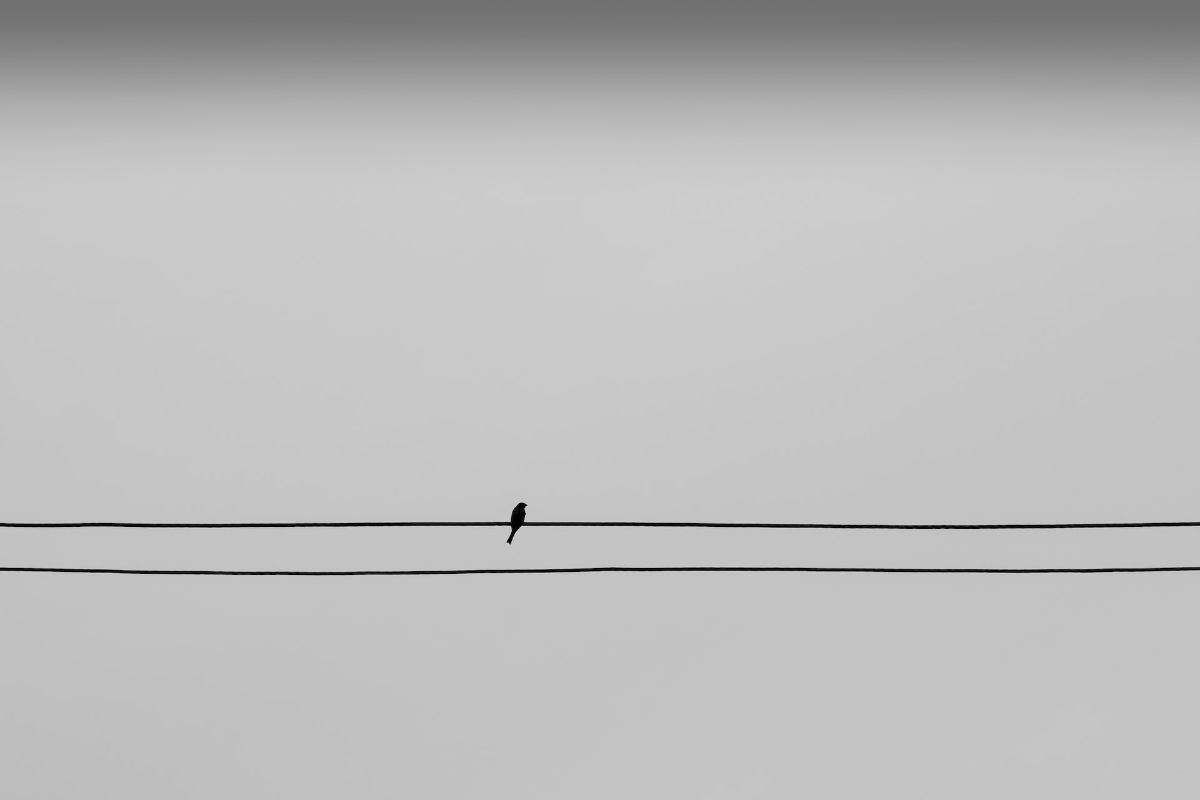

This month we offer a ginger(ly) braid, a procedure in three parts, new world sparrows.
Next month we:
move
Submission guidelines can be found here.

Ginger(ly) braid
My flesh is taking up spice.
I tap on the glass and say, “This
is me, this is me, this is me—”
My order is an animal
that has been many shapes;
cookies not currency accepted.
One of these is not liking
the other, but they’re still
me, and my insulin catches
up, fresh from the pan. Crease
the pinchable closed. Bag
beg to scale and tare.
Vanessa Couto Johnson (she/they) is the author of the full-length poetry books Pungent dins concentric (Tolsun Books, 2018) and forthcoming pH of Au (Parlor Press, Free Verse Editions Series 2022), as well as three poetry chapbooks. Most recently, Vanessa’s poems have appeared in Landfill, Abandon Journal, Angel Rust, and Pine Hills Review.

procedure in three parts
I. removal
On the day my breasts were removed, the sun hitchhiked up the sky. A web of orange red marigold. We stare at it quietly, trying not to disrupt our eyes. Some things are so beautiful, they burn. Two waiting rooms and then a curtain separating me from the other patients. A gown made of cotton, not paper. A bag for my belongings. My body asking questions caught behind my teeth. Shivering. This hospital, a country full of women. My surgeon draws on me. My eyes follow the black marker marking skin. Nurse named Laurel gracefully inserts an IV. Anesthesiologist injects what will feel like three glasses of wine. I ask what color. My consciousness drinks red.
II. pain
There are fourteen syllables in this pain. It is 5 pm traffic on interstate 95. There are lightning bolts made from microwaved needles trampolining off my skin, off a chest I haven’t met yet, that waits for me beneath bandages. This pain is a verb and a proper noun. This pain is a run-on sentence, and it won’t let me off the phone. This pain is reminding my body how alive it is.
III. recovery
At night, the body is chrysalis. Spelling weather patterns into the bedsheets made too warm by the summer heat. For the first time in a month and a half, I roll on to my side. My scar winces just a little and I ask it permission to remain. Curled. As though trying to fit myself, inside myself. My limbs are weak and uncertain now. But as I sleep, I dream of bodies against mine who don’t ask me what I am or even what I need. They do not tell me I am not enough of this or do not look the part. They just remain like screen doors protecting me. In the morning, I ache, I wish for more hours, for autumn to whisper its sixty-degree breath against my neck. I unfurl. Beside me, frost or snakeskin or the peeling remains of my scar guard repair liquid beside me and lifting off my skin. My body is a windowsill, peering out, wondering what is next.
Aimee Herman is the author of the novel, “Everything Grows” (Three Rooms Press) and two full-length books of poems, “meant to wake up feeling” (great weather for MEDIA) and “to go without blinking” (BlazeVOX books), in addition to being widely published in journals and anthologies including BOMB, cream city review, and Troubling the Line: Trans and Genderqueer Poetry and Poetics (Nightboat Books). Aimee is a queer writer and educator and a founding member of the poetry band, Hydrogen Junkbox.

New World Sparrows
I’ve dealt with each body in its own way.
For a long time it was just the one: the body that is decidedly my body, is arguably actually me. I feed it, wash it, tell it a long story that never comes to an end until one day I guess it will, and we’ll slide out of the world in quiet unison. This one hardly counts.
The first other body was when my boyfriend brought home a dead bird. He was still my boyfriend then. Now he’s a set of funny stories I tell over and over, and a hard lump of sad incredulity I keep tucked away in my chest. How it is possible that I chose him over myself for so long, when he gave me so little? But one thing he did give me was the corpse of that bird. I set it in the freezer because I couldn’t tell what it was. I thought if I saved it for long enough, I would come to learn its name.
About a year later, I woke up in bed next to the second body. It was long-haired, youthful, radiant, and taking the spot that my boyfriend had recently vacated—as in, he had finally moved out of the house, not like he was up before me and making us coffee, which he didn’t do once in eight years. This one evaporated before I had time to worry about it. It left behind indented sheets, and a smell of cinnamon.
Another one appeared in my garage, half-mummified, unidentifiable. I left it in a corner near my ex’s old paint cans and a broken rake and other trash that he’d hoarded and left behind. For all I know, it’s still down there. It appears occasionally in my dreams.
My dad’s body was a puzzle. Of course I called him right away to see if he was dead, and he wasn’t. He picked up the phone and we had a whole conversation while his likeness was sprawled on my living room floor, giving me that light-blue dead-eyed stare. Not an experience I recommend. But I’d been assured of its imposter status, so I bagged it and popped it in the outside bin, no compunction. I was ready for anything.
Just yesterday I rediscovered the bird, its little brown beak poking out from underneath a freezer-burnt bag of peas. What had once been a mystery was now mundane: a song sparrow, Melospiza melodia. I could tell because of how the black stripes on its breast came together in a little splotch. I see them all the time in the trees by the creek, on the walks I take alone every Tuesday. They are the only bird I can identify by sound.
I set it on the deck, pronounced its name, and waited for it to take flight.
Max Wheeler is a trans writer from Oakland, CA, who recently quit teaching high school and now watches birds, writes stories, and tends to plants. His fiction will be appearing soon in the Civilian Climate Futures Project and the Heavy Feather Review feature #nomorepresidents. You can find him on instagram @mxwheels.

Sign up to receive a new issue of Rough Cut Press the first week of each month.
We will never share your contact information without explicit permission.
